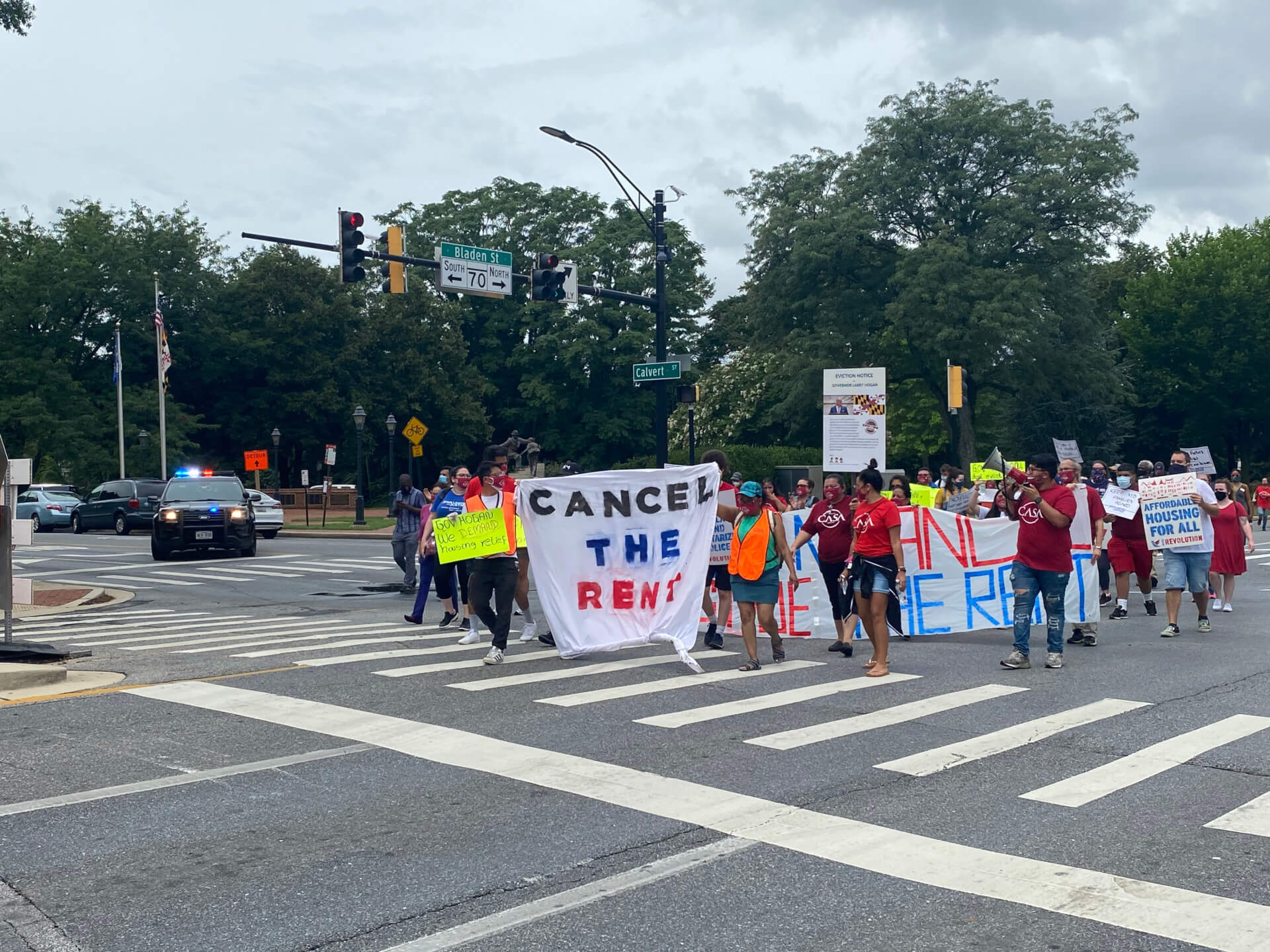U.S. Eviction Moratorium ‘Not Helpful to a Lot of People in Md.,’ Official Warns

Marylanders will still need to go to court to fend off evictions under the new Centers for Disease Control and Prevention moratorium, state officials told tenants during a Tuesday night virtual town hall.
The CDC moratorium has stringent requirements for renters to avoid eviction, Assistant Attorney General Karen Straughn told the Montgomery County Renters Alliance during a virtual forum on Tuesday. Straughn called the order “very limited” and said Marylanders aren’t automatically protected by its provisions.
“It’s not helpful to a lot of people in Maryland,” Straughn said.
In order to avoid eviction under the new moratorium, tenants will be required to sign an affidavit saying that they won’t earn more than $99,000 in annual income in 2020 and meet other income requirements; tried to get any available government rental or housing assistance; are trying to make “timely partial payments;” and showing that they lost income due to the COVID-19 outbreak.
Tenants will also have to show that they would be made homeless if evicted, or would have to move into a “congregate or shared-living setting.”
Eviction filings will go forward despite the CDC’s moratorium, Straugh said, and tenants aren’t automatically exempt from facing eviction.
The order doesn’t prevent collection of late fees, penalties or interest due to failure to pay rent. U.S. Rep. Jamie B. Raskin (D-Md.) told renters during the meeting that a moratorium by itself won’t fix the looming housing crisis — but will only delay it.
Raskin said the CDC order on evictions is just “kicking the can down the road,” since tenants will still owe their unpaid rent when the order expires at the end of December. He noted that some $100 billion was earmarked for rental assistance and eviction prevention under congressional Democrats’ proposed coronavirus stimulus bill, the HEROES Act.
“What is going to happen when somebody’s got no money in their pocket and a year’s worth of rent to pay?” Raskin asked.
Although the HEROES Act passed the Democrat-controlled House of Representatives, it is facing strong opposition in the Republican-controlled Senate. Senate Republicans have proposed their own stimulus bill, the HEALS act, which doesn’t include an eviction moratorium and provides just $3.3 billion for housing vouchers.
Raskin said he expects Democratic and Republican leaders to hash out a deal on rental relief as Congress returns from its August recess, although the two parties are currently in a stalemate over whether to provide trimmed-down, targeted relief funding or sweeping aid.
Maryland Attorney General Brian E. Frosh (D) told tenants that his calls on Gov. Lawrence J. Hogan Jr. (R) to provide more rental assistance have fallen on deaf ears so far. Frosh slammed the Hogan administration for only providing $30 million toward rental relief from the CARES Act, which was passed by Congress in March.
The attorney general and other Democratic policymakers have repeatedly called on Hogan to allocate more federal relief funding toward rental assistance. It would take $238 million to cover just one month of rent for the more than 200,000 Marylanders that need immediate assistance, according to the National Low Income Housing Coalition.
Officials have spent more than 90% of the $1.653 billion allocated to Maryland from the Coronavirus Relief Fund, Department of Budget and Management Secretary David R. Brinkley told lawmakers last week. State officials are holding back roughly $117 million in case of a second wave, Brinkley said.
Frosh said he asked Hogan for $135 million in rental assistance, but got no response from the administration. State officials previously sought out additional rental relief funding from FEMA, but Hogan spokesman Michael Ricci said their request was denied.
“This is what government is for,” Frosh said. “If we can’t help people stay safe, then we need a different system.”
More funding on the way
Hogan opened applications for $16 million in grants on Wednesday to support rental assistance programs in Maryland’s 24 jurisdictions. The Maryland Eviction Prevention Partnership draws from federal Community Development Block Grant funding, according to a news release.
Local governments that get the grants might set up specific requirements for which renters can get the relief funding, but the state already mandated that recipients can’t exceed 80% of the median income in their area, and will have to show job loss or reduction in work hours due to COVID-19.
“These grants will help ensure more of our citizens can remain safe and secure in their homes,” Hogan said in a statement.
Maryland’s Department of Housing and Community Development already distributed $2.2 million in Eviction Prevention Partnership grants to eight counties, part of a $20 million partnership with Maryland’s local jurisdictions.
Various local governments have set up rental assistance and eviction programs of their own since the onset of the coronavirus pandemic. Some, like Montgomery County, used their share of the Coronavirus Relief Fund to fund already-existing homelessness prevention programs in their area.
Others, like Baltimore City, set up new grant programs: Baltimore City’s Board of Estimates approved a roughly $30 million eviction program last week. That program is set to launch in late September.
Baltimore’s program will draw from a mix of federal CARES Act relief funding from multiple city agencies, according to a news release. Anyone can apply, but need to meet the certain income criteria, including:
-
Have a household income of 50% or less of the average median income
-
Demonstrate a COVID-19-related financial impact
-
Provide proof of pending eviction proceedings
State officials also created an Assisted Housing Relief Program, which offers rent rebates to tenants in multifamily projects financed by the state’s Community Development Administration with state and federal funds. The program has doled out $6 million in eviction prevention money to 3,000 families so far, according to a news release.




 Creative Commons Attribution
Creative Commons Attribution